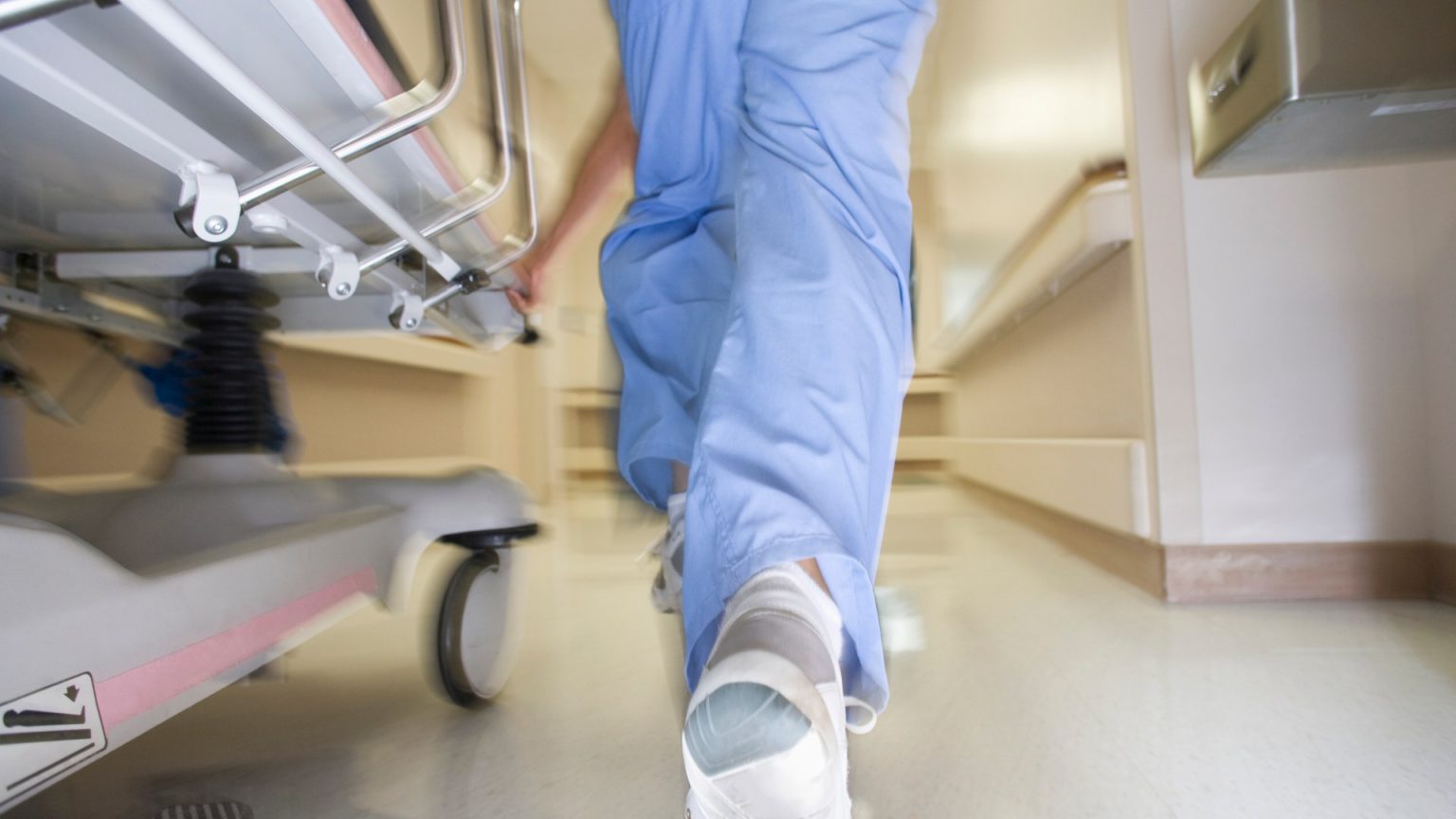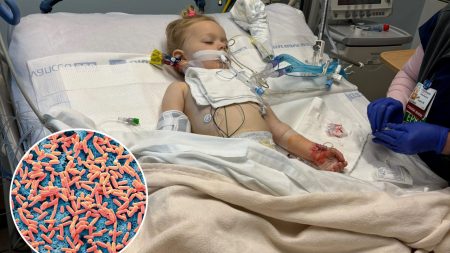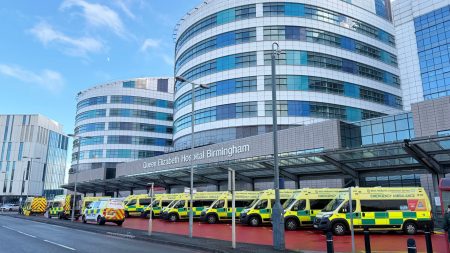The National Health Service (NHS) in the United Kingdom is grappling with immense pressure, particularly in emergency departments, due to a surge in winter illnesses. Hospitals across the country are experiencing unprecedented demand, leading to extended waiting times and the reintroduction of Covid-era restrictions, such as mandatory mask-wearing for staff, patients, and visitors. This strain on resources is widespread, affecting hospitals from South Wales to Chesterfield and Leicester. The confluence of flu, Covid-19, norovirus, and RSV cases is creating a perfect storm, overwhelming healthcare facilities and prompting urgent pleas to the public to consider alternative care options for less severe ailments.
The University Hospital of Wales in Cardiff exemplifies the widespread crisis, declaring a state of “extreme pressure” due to the overwhelming influx of patients. Dr. Clare Davies, an emergency medicine consultant at the hospital, issued a public appeal, urging individuals with minor injuries to seek treatment at minor injuries units or community pharmacies. These alternative avenues of care can provide timely treatment for less urgent conditions, freeing up vital resources within the already strained emergency department. Dr. Davies stressed the importance of utilizing NHS 111, a non-emergency medical helpline, to determine the appropriate level of care needed, potentially diverting patients away from overcrowded A&E departments.
The surge in winter illnesses is not limited to a single hospital or region. Several hospitals across the UK declared “critical incidents” in the lead-up to Christmas, indicating an inability to cope with the sheer volume of patients requiring care. Royal Stoke University Hospital, for example, declared its eighth critical incident of the year, while Noble’s Hospital on the Isle of Man suspended visiting on two wards due to a norovirus outbreak. The Royal Hampshire County Hospital and Basingstoke and North Hampshire Hospital also declared critical incidents due to capacity limitations. These incidents highlight the widespread nature of the crisis and the immense strain on hospital resources. While some of these critical incidents have since been stood down, the underlying pressure on the NHS remains significant.
The primary drivers of this increased pressure are the high prevalence of winter illnesses, particularly the flu. Flu cases in hospitals have already exceeded the peak observed last year, with a substantial proportion of hospital beds occupied by patients suffering from flu and other seasonal ailments. Norovirus and Respiratory Syncytial Virus (RSV) are also contributing significantly to the burden on healthcare services, with a notable increase in hospitalizations compared to the previous year. The combination of these illnesses is creating a synergistic effect, exacerbating the challenges faced by the NHS.
The NHS provides clear guidance on when to utilize its various services. NHS 111 is the recommended first port of call for non-life-threatening medical concerns when a GP is unavailable. This service provides advice, assesses the urgency of the situation, and directs individuals to the appropriate level of care. A&E departments are reserved for genuine life-threatening emergencies, such as loss of consciousness, chest pain, severe bleeding, stroke, and major trauma. Less severe injuries, such as sprains and minor cuts, can be effectively treated at urgent care centers or minor injuries units, relieving pressure on A&E departments.
The current situation underscores the importance of responsible healthcare utilization. By seeking appropriate care based on the severity of the condition, individuals can contribute to alleviating the burden on the NHS and ensuring that critical resources are available for those who need them most. Utilizing community pharmacies, minor injuries units, and NHS 111 for less urgent medical needs allows emergency departments to focus on providing timely and effective care to patients experiencing life-threatening conditions. The collective effort of the public in utilizing appropriate healthcare services can play a crucial role in navigating this challenging period and supporting the NHS.











